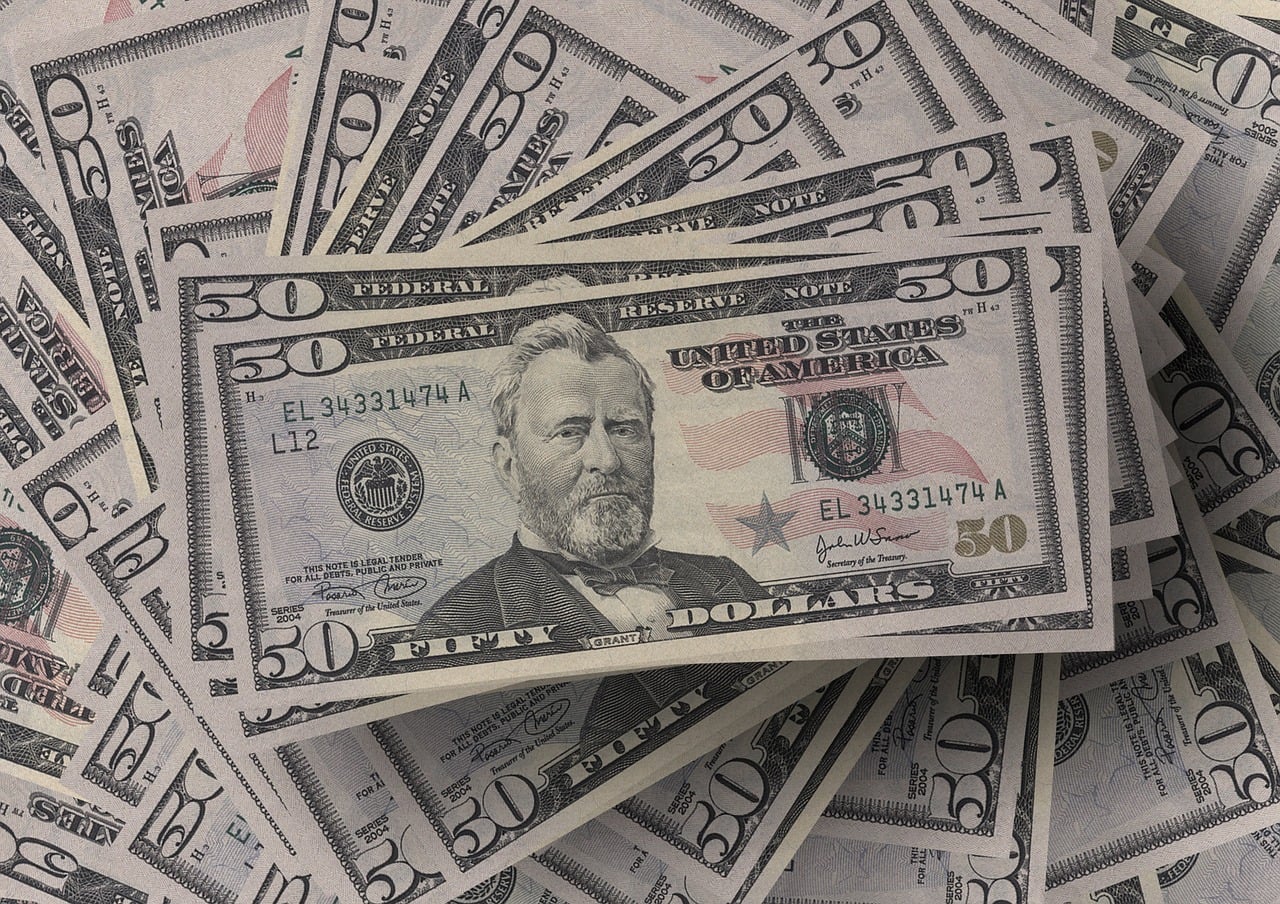COVID-19 is something new to every single person alive today. Nothing like this scale has happened since World War II, and when the virus first emerged in Wuhan, no one would expect it would grow to such an extent.
Q1 2020 hedge fund letters, conferences and more
Although the COVID-19 pandemic took shots at the regular working people and their financial stability, the overall financial situation of the most popular currency, the USD, is quite admirable at the moment. In this article, we will discuss how USD managed to overcome this crisis and still emerge on top.
The Dollar Has Ruled Headlines In Past Years
In recent years, de-dollarization has been one of the key geopolitical topics, and this applies to numerous countries. China and even Europe regularly raised the issue of overthrowing the dollar from the currency Olympus. The desire is understandable - to deprive the United States of the most important instrument of pressure in world politics.
Now that the printing press of the Federal Reserve is operating at full capacity, and the debt level of the US government has obviously overcome gravity and is heading for the stratosphere, calls for a replacement for the dollar as the world's reserve currency are again becoming wave-like.
The main rival of the United States on the world stage remains to be China. It is not surprising that it is in the PRC that they would like to find an alternative the most.
Last week, President of the Shanghai Gold Exchange (SGE) Wang Zhenying announced the need to create a new super-sovereign currency instead of the dollar.
According to him, the unlimited program of quantitative easing by the Fed and other stimulus measures have raised concerns about the stability of the dollar system and in the long run, will lead to the depreciation of the dollar.
President of Euro Pacific Capital Inc. Peter Schiff was also confident that the dollar would weaken for a long time. He was sure the question is not whether this would happen, but when. But in times of COVID-19, none of those predictions came true. The dollar has been very strong and managed to maintain its stability.
A Probable Hyperinflation
The reaction of the American regulator and government to Coronavirus has transferred hyperinflation from the status of the worst-case scenario to the most probable one.
According to Mr Schiff, the moment would come when massive dumping of dollars was inevitable. Investors simply will not want to hold bonds denominated in dollars, as their value will decrease along with the revaluation of the currency itself.
Last year, Washington threatened to disconnect even China from the dollar system if the country did not follow UN sanctions on North Korea.
It is clear that such a policy is quite annoying for other countries, especially those that have a significant impact on the global economy, so sooner or later the process of moving away from the dollar will most likely be launched.
But in times of crisis, nothing like this has really happened. The dollar was dominant. Yes, people lost jobs in the United States, but the exchange rate of the USD was not significantly changed, considering the scope of the virus.
A Comparison Of Bitcoin And USD During The Crisis
While talking about USD, we cannot escape mentioning Bitcoin, which was expected to be a safe haven during the crisis.
This was especially the case with service providers that allocated quite a lot of resources to their savings accounts, hoping that BTC would jump significantly during the crisis. Unfortunately, in the beginning of the crisis, BTC failed miserably but has started to perform admirably only now in the last few weeks.
USD A Weapon For The United States
This is a weapon for the United States, but for other countries - a source of danger. The currency that the world ultimately chooses for global trade should not give privileges to anyone, nor endanger others.
The massive purchases of gold by central banks over the past few years may signal that the world is now preparing to move away from the dollar, but it is unlikely in the current situation.
Curiously, the value of the dollar is moving in different directions to other fiat currencies and gold. A serious discrepancy began at the end of 2018 and has only expanded since then.
However, it is worth recognizing that there are certain obstacles to the overthrowing of the dollar. The fact is that it is in the American currency that a colossal amount of debt is nominated - about 40%.
The Collapse Of The Dollar Will Lead To The Destruction Of The Entire Financial System
This became apparent during the 2008 financial crisis. Non-US banks had international liabilities equivalent to $27 trillion. About 18 trillion were denominated in dollars. As a result, the US Federal Reserve had to increase the swap line for foreign Central Banks - this was the only way to satisfy the dollar hunger.
The Crisis Made The USD More Influential
However, the crisis ultimately made the dollar even more influential, as it expanded its use in global trade. Already the obligations of banks in Germany, France, and the United Kingdom in dollars were greater than the obligations in their own currencies.
Besides, all of the above in the foreseeable future will with an enviable regularity lead to a surge in demand for dollars. The need to pay debts will provoke purchases of the dollar; as a result, make the US currency stronger.
So, economists, confident in the inevitable weakening of the dollar, maybe very mistaken in their judgments.
By the way, the US desire to print as many USD as possible can also be dictated not only by the desire to help the economy recover from the crisis but also to further expand the influence of its currency. The more dollars in the financial system, the wider its use, which means it will be more difficult to deprive it of reserve status.





